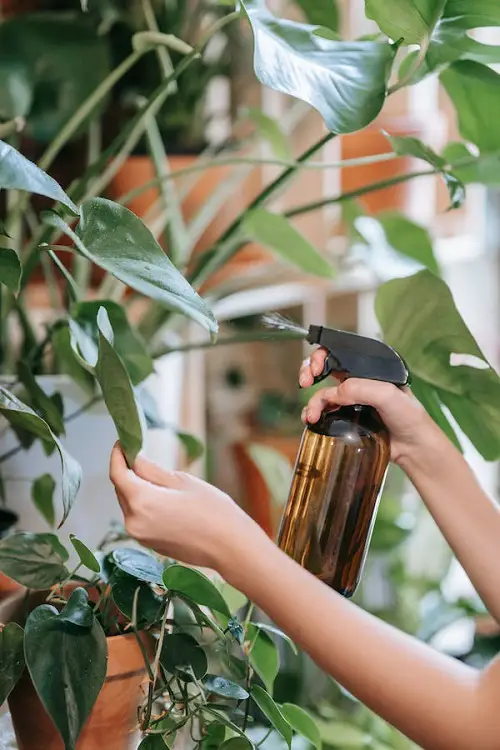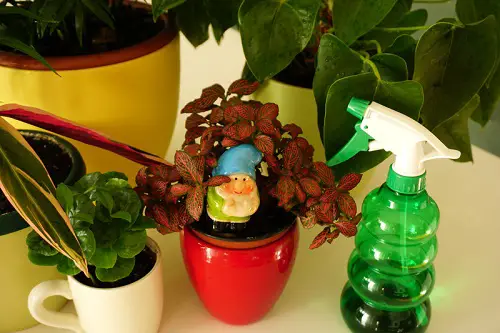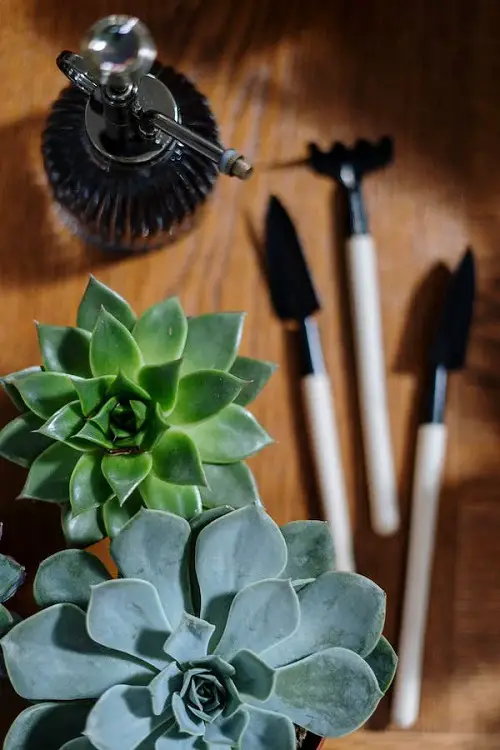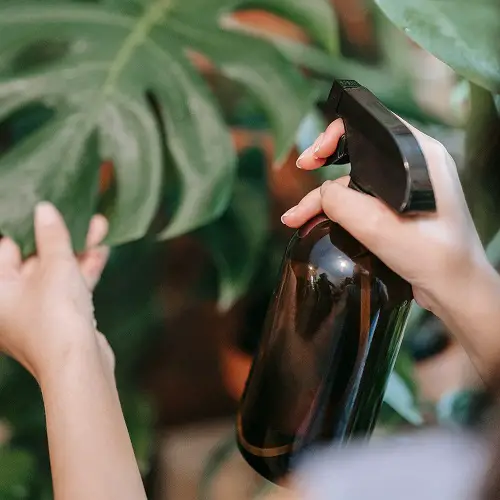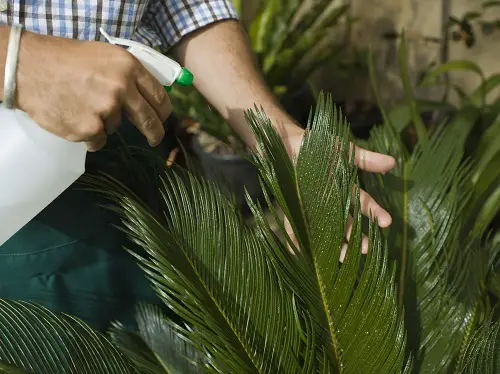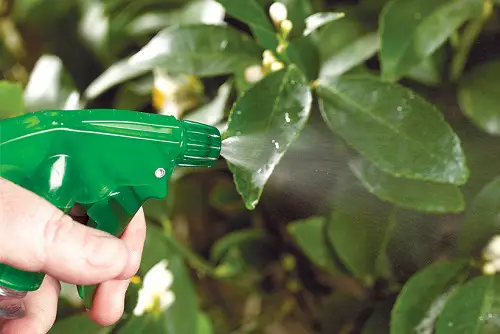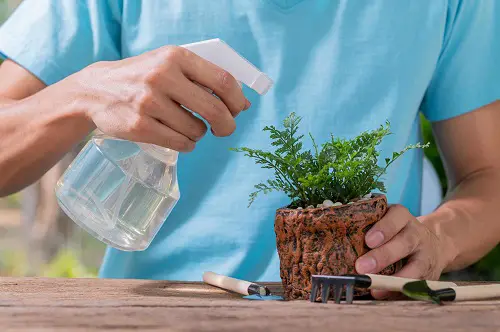Can You Spray Alcohol on Plants? If you, too, have this question and are not sure what to do, then this is the guide for you!
Can You Spray Alcohol on Plants? Well, at first, this might not sound like something safe to do, but it has its advantages! Let’s have a look at them in detail.
Check out some fantastic Rubbing Alcohol Uses for Plants Here
Can You Spray Alcohol on Plants?
While it is not recommended to spray alcohol directly on your plants as it can damage the leaves and roots, there are some types of alcohol that can be used as a natural remedy for certain plant issues. Here are a few examples:
- Rubbing alcohol: Rubbing alcohol can be used to clean and disinfect gardening tools to prevent the spread of diseases between plants.
- Ethanol: Ethanol can be used as a natural insecticide to control pests like aphids, mealybugs, and spider mites. However, it should be used in moderation and with caution, as it can also kill beneficial insects.
- Beer: Beer can be used as a natural slug and snail repellent. Simply place shallow containers of beer in your garden to attract and drown the critters.
- Wine: Wine can be used as a natural fungicide to prevent and control fungal diseases like powdery mildew. Simply mix one part wine with three parts water and spray on the affected plants.
- Vodka: Vodka can be used to extend the life of cut flowers. Simply add a few drops of vodka to the vase water to kill bacteria and prevent the water from becoming stagnant.
It’s important to note that while these types of alcohol can be used for specific purposes in gardening, they should be used in moderation and with caution to avoid causing harm to your plants.
Important Points to Note Before You Spray Alcohol on Plants
1. Dilute It
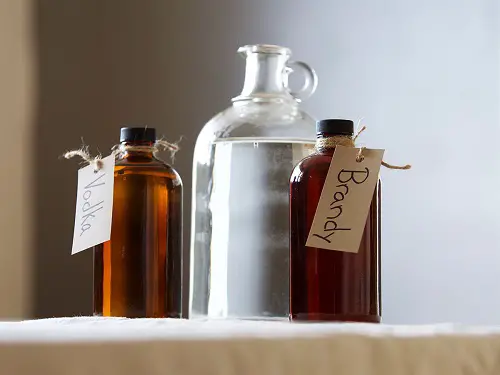
Pure alcohol can be too harsh for some plants, so it’s important to dilute it with water before using it as a spray. Dilute one part of alcohol with 4 parts of water to play safe.
2. Test It First on a Small Area
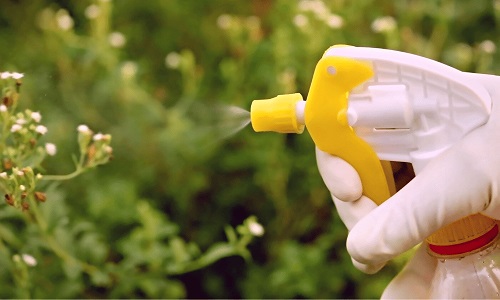
Before applying the spray to your whole plant, test it on a small, inconspicuous area first to make sure your plant can handle it. Wait 24 hours to see if there are any adverse effects before proceeding.
3. Use It Sparingly
Alcohol can dry out your plant’s leaves and roots if overused, so be sure to use it sparingly. Limit use to once a week at most.
4. Avoid Using It On Sensitive Plants
Some plants, like succulents and ferns, are more sensitive to alcohol and may not react well to it. Avoid using alcohol-based sprays on these types of plants.
5. Use a Spray Bottle
Use a spray bottle to apply the alcohol mixture evenly over your plant’s leaves, making sure to cover the undersides where pests like to hide.
Want to know How People are Using their Booze bottles in the Garden? See this
Effectiveness of Alcohol
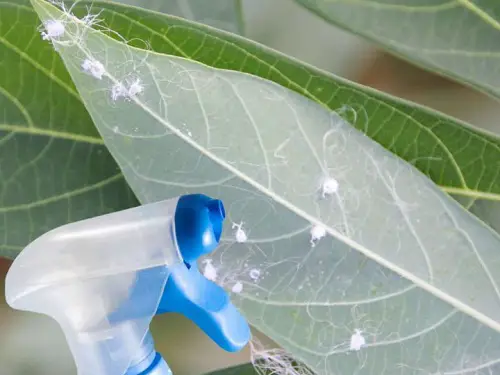
Alcohol can be an effective solution for controlling fungi, thrips, spider mites, and mealybugs on plants. However, its effectiveness can vary depending on the concentration of the alcohol, the type of insect or fungus, and the plant species.
- Fungus: Alcohol can be an effective way to kill fungus spores on the surface of plant leaves. Use a solution of isopropyl alcohol and water in a 1:1 ratio and spray it directly onto the affected areas. Be careful not to spray too much, as this can damage the plant.
- Thrips: To kill thrips on plants using alcohol, – you will need to mix a solution of 50% isopropyl alcohol and 50% water and spray it directly onto the affected areas. You may need to repeat this process several times to eliminate the thrips completely.
- Spider mites: Alcohol can also effectively kill spider mites on plants. Mix a solution of 1 part rubbing alcohol to 1 part water and spray it directly onto the affected areas. Be sure to cover both the tops and bottoms of the leaves.
- Mealybugs: Alcohol can be an effective way to kill mealybugs on plants. Dip a cotton swab into rubbing alcohol and gently dab it onto the affected areas.
Check out our article on how to get rid of spider mites here
Frequency of Using Alcohol On Plants
The frequency at which you should use alcohol on plants depends on the purpose of its application and the specific plant you’re dealing with. Here are some general guidelines for using alcohol on plants:
- As a Natural Insecticide: If you’re using alcohol to control pests, you may need to apply it once in 3-4 weeks, depending on the severity of the infestation
- As a Disinfectant: If you’re using alcohol to disinfect your plants, you may only need to apply it occasionally, such as once every few weeks or whenever you notice signs of disease or infection.
Find out 8 natural pesticides for garden and their recipes here.
Can Alcohol Kill Your Plant?
Yes, alcohol can potentially kill your plant if it’s used improperly or in excessive amounts. Alcohol can be toxic to plants and cause damage to the leaves, stems, and roots.
The severity of the damage will depend on the type of alcohol used, the concentration of the alcohol, and the sensitivity of the plant to the alcohol. Some plants are more tolerant of alcohol than others, so it’s important to do your research and use alcohol sparingly and with caution.
Here are the Most Important Tips for Indoor Plant Killers that you must follow.
Impact of Alcohol on Soil
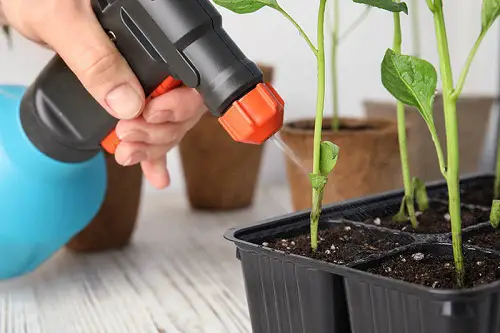
Excess of anything can have a negative impact. So if you have provided excessive alcohol to plants, it will not only impact your plant. But it can potentially have negative effects on the soil. So here are some of the ways alcohol can impact soil health:
- Killing beneficial microbes: Alcohol can be toxic to beneficial microorganisms in the soil, such as bacteria and fungi. These microbes play a vital role in maintaining soil health and nutrient cycling, so their loss can have negative impacts on plant growth.
- Disrupting soil structure: Overuse of alcohol can also damage the soil structure, making it more difficult for water and air to penetrate the soil. This can result in poor drainage, waterlogging, and an increased risk of plant disease.
- Reducing nutrient availability: Excessive alcohol usage can also reduce the availability of nutrients in the soil, making it harder for plants to grow and thrive.
Here are Some Container Gardening Tips (Soil) That You Need To Know Now
Reversing Overdose of Alcohol on Plants
There can be instances when someone has gone a bit overboard with the alcohol on their plants! In such a situation, first of all, don’t worry, as there are a few things you can do to help your plants recover:
- Firstly, in such cases, you should stop using alcohol on your plants immediately. Depending on the severity of the overuse, it may take some time for your plants to recover, but taking this step will prevent any further damage.
- Next, you should give your plants a good rinse with clean water to help remove any excess alcohol. Be sure to soak the soil thoroughly to help flush out any residual alcohol that may be in the root zone.
- Suppose your plants are showing signs of stress, such as wilting or yellowing leaves. In that case, you will need to give those plants a bit of extra care. This could mean providing them with some extra water, adjusting the lighting or temperature conditions, or even pruning away any damaged or dead foliage.
- It’s important to be patient and gentle with your plants during this recovery process. With a little bit of care and attention, they should bounce back in no time!


